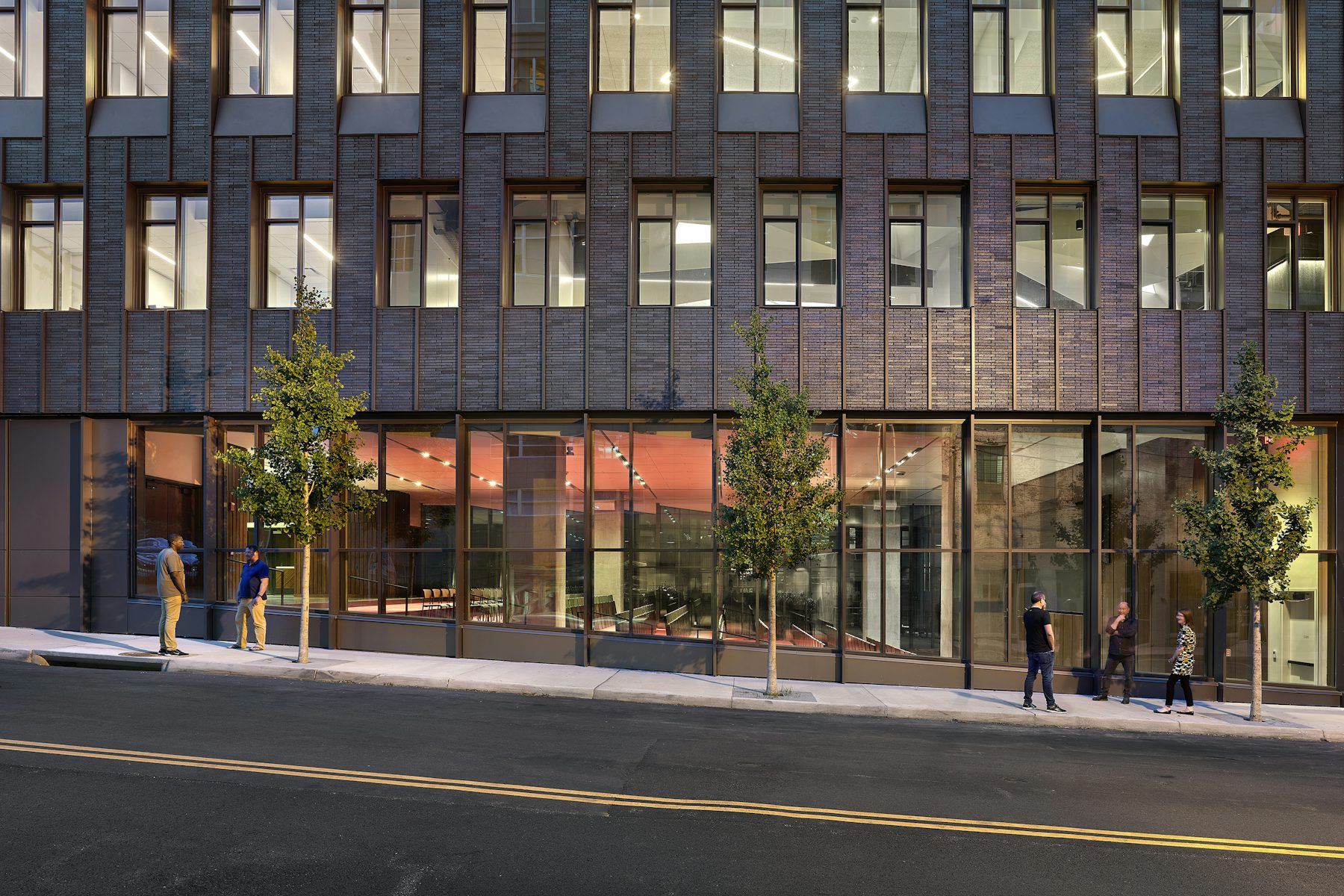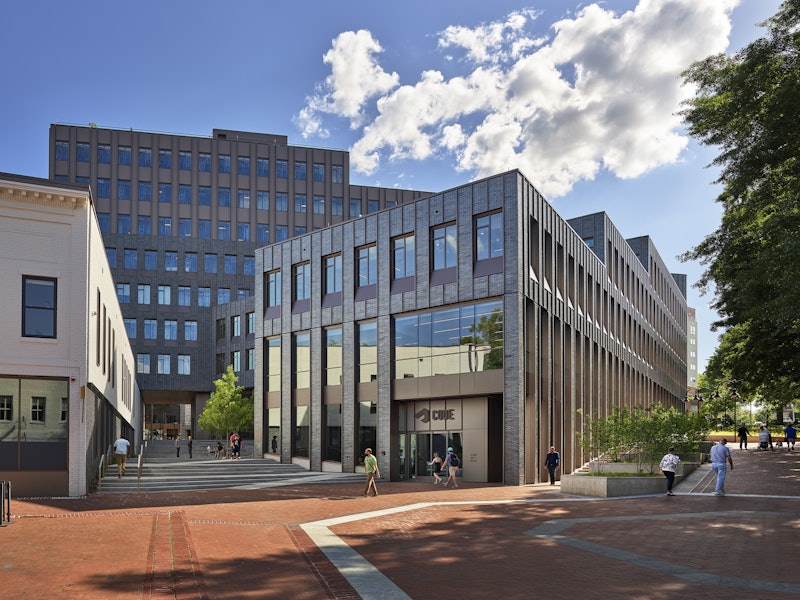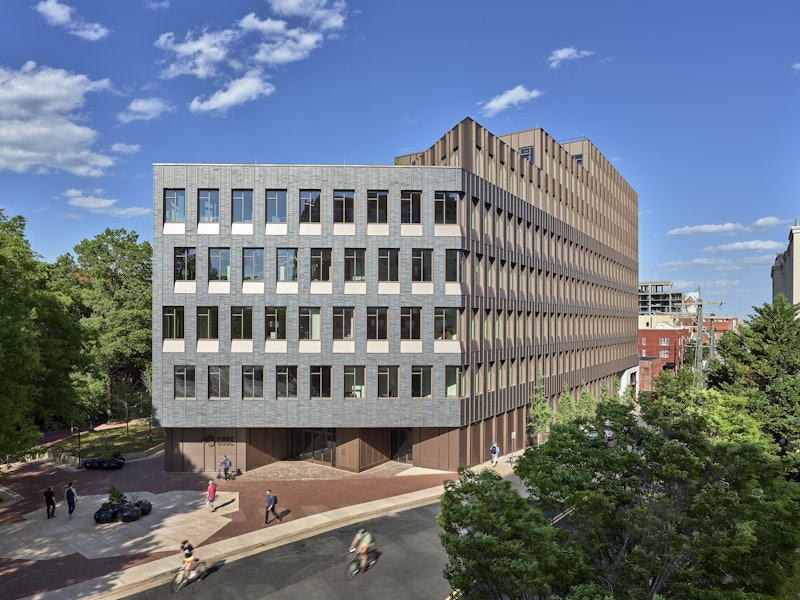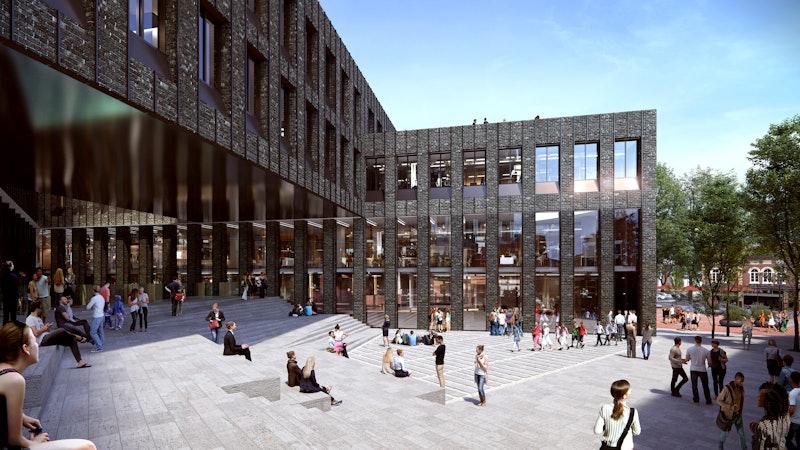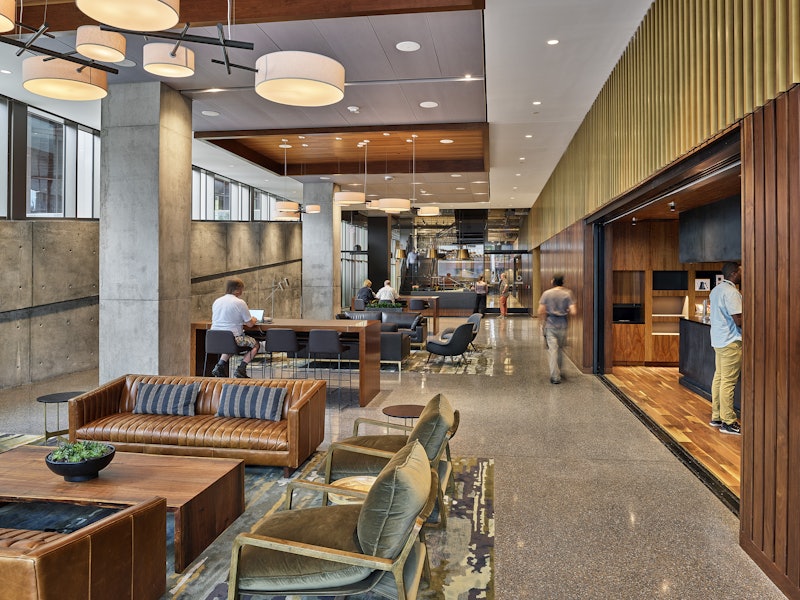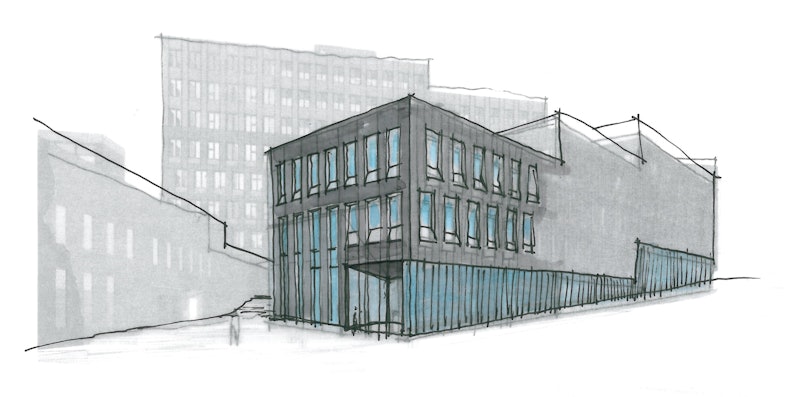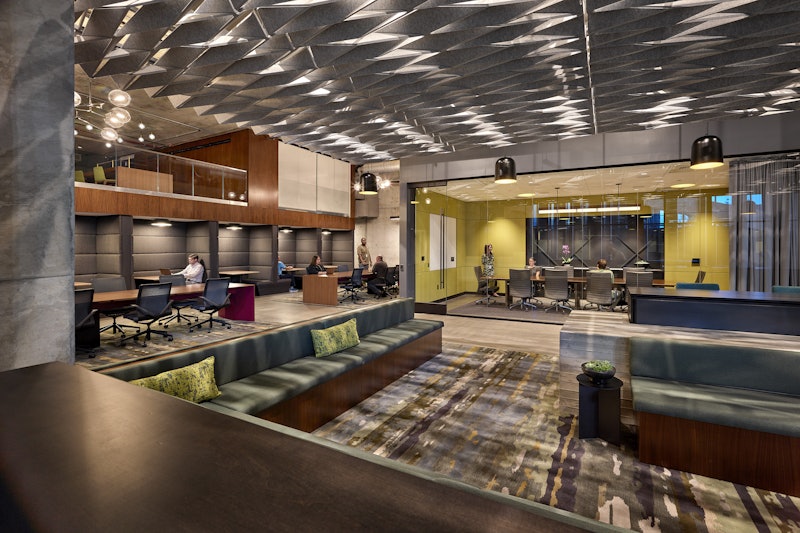

The Center of Developing Entrepreneurs (CODE)
The Center of Developing Entrepreneurs (CODE), certified LEED Platinum from the USGBC, is a new mixed-use project in Downtown Charlottesville comprised of a new public plaza for the historic pedestrian mall and 215,000 sf of multi-use space, including a strategic combination of coworking, office space, shared amenities, and retail.
LOCATION
SIZE
Year of Completion
EUI
Certifications
Collaborators
Services
AWARDS
Photographer Credit
Our team came together in early 2017 in response to the opportunity to design a unique project capping the Charlottesville pedestrian mall. The investor behind the development, a UVA grad, wanted to give back to the community by providing a place where locally-grown innovations in information technology, clean energy, and the like, could blossom into locally-based businesses, rather than relocating outside of the region. Locating the project on the mall would reinforce a commitment to walkability, but pose the tricky challenge of integrating a project of the requisite size with the small scale of the mall. In response, the design team introduced a novel solution: stair-stepping the massing up from the mall towards the intersection of Main and Water streets, then spiral up further to meet the scale of Water Street, with a cascade of occupiable terraces and green roofs.
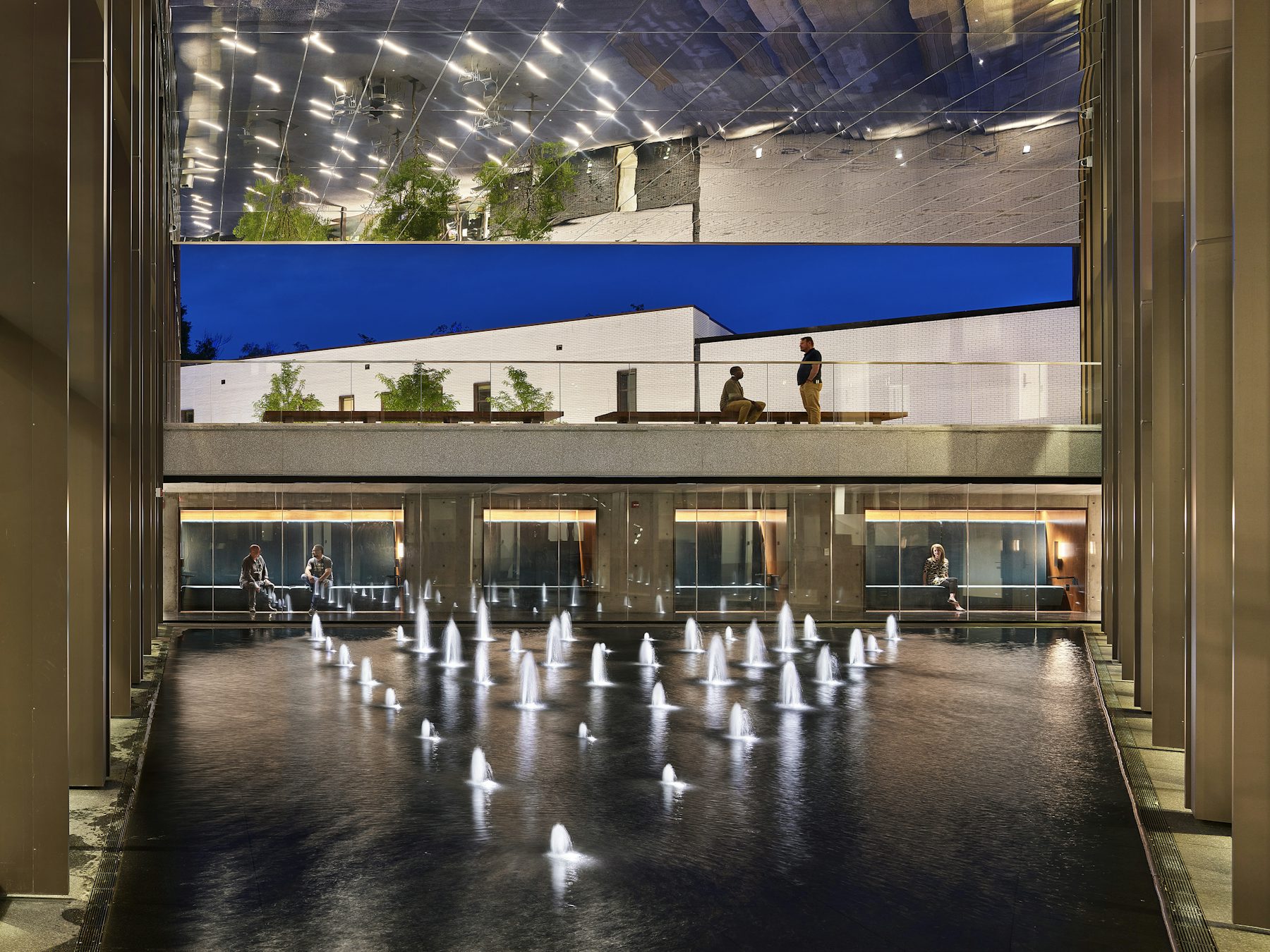
The building negotiates the difference in scales of the surrounding environment by employing a stepped elevation pattern, exposing rooftop courtyard areas and panoramic views of the Blue Ridge Mountains.
While exploring building massing options, simulations were performed, not just for their impact on energy consumption, but also of the impact of shadows cast upon existing trees. At the ground floor, the brick is lifted, replaced by a glazed first story, exposing a unique public space intended to enliven the street and promote connectivity. This interior plaza also serves to extend the conclusion of the main thoroughfare, Main Street, with a direct connection to adjacent Water Street, facilitating access between the adjoining areas and allowing further retail space to be integrated into the surrounding pedestrian mall.
Based on the results of peer-reviewed research demonstrating improved learning and decision-making performance for knowledge workers when ambient air has lower levels of carbon dioxide and other contaminants, a palette of low-emissions materials was employed, and the building ventilation system provides more than twice the standard flow of fresh air—but does this in ways that still achieves energy use that is 1/3 that of the benchmark office building. Design choices were also informed by ongoing assessment of the carbon emissions associated with the materials used for construction, helping the team lower the carbon footprint of the project even before the building opens.
The building envelope design draws from the brick cladding and punched window openings of the historic context, but is implemented with a modern rainscreen to achieve high levels of insulation and thermal comfort while providing defense-in-depth against water intrusion.
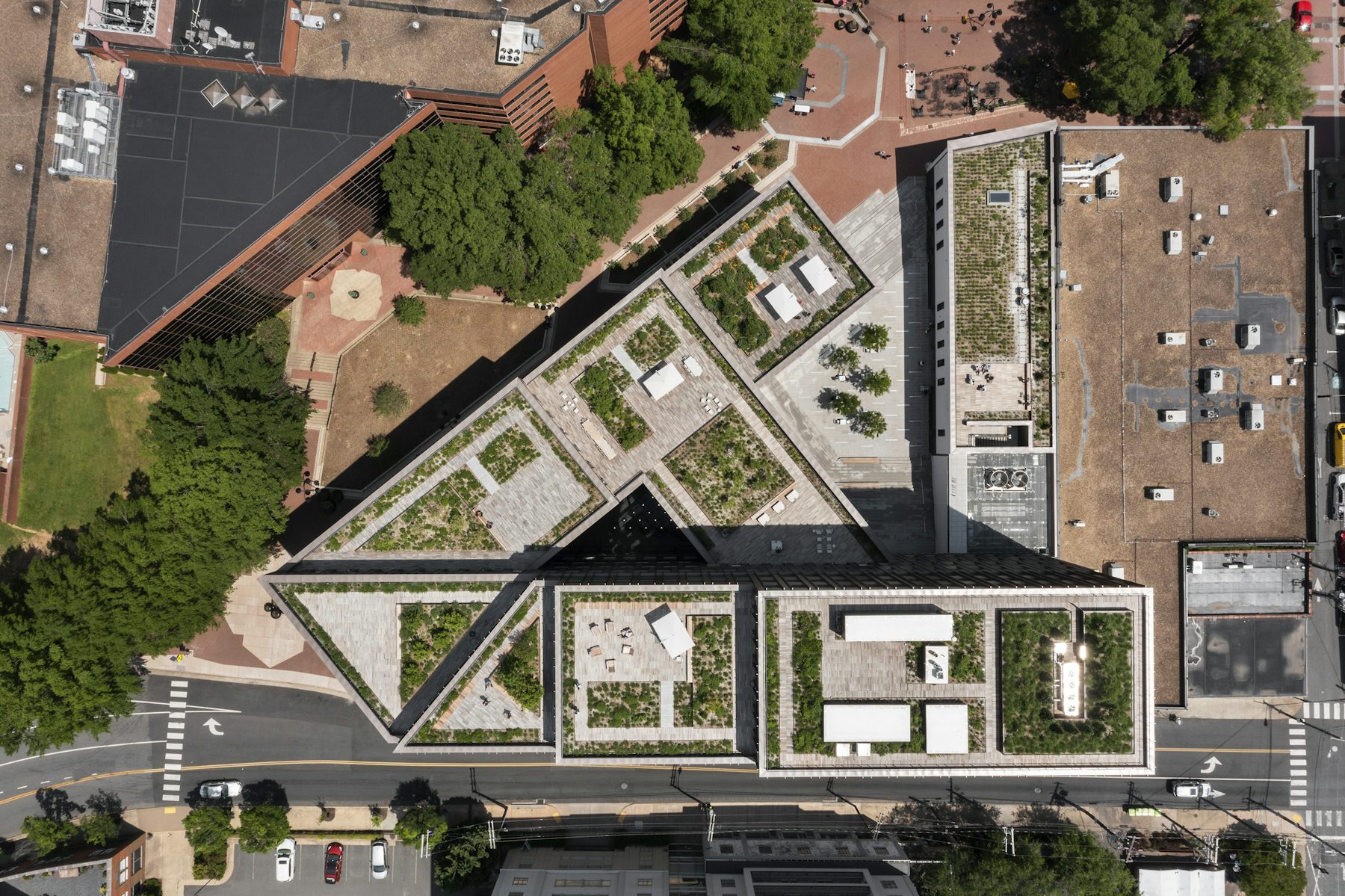
The occupiable blue roofs of CODE, which soak up rainwater like a sponge, and then slowly release it into two underground cisterns. During times of drought, this water can be pumped back up to the roofs to irrigate plants.
Coworking is an emerging market, one still experiencing rapid development and innovation. The design team researched other spaces extensively, visiting various coworking facilities in achieving the perfect blend of office and coworking space. Throughout, the design team worked with a client representative in pursuing a vision to uphold the changing nature of work, straddling a line between the formal and informal, instilling a unique blend of clean commercial space with a more relaxed residential feel. All interior elements, from furniture and textiles to fixtures and artwork were handpicked by the team in fostering a warm, welcoming space.
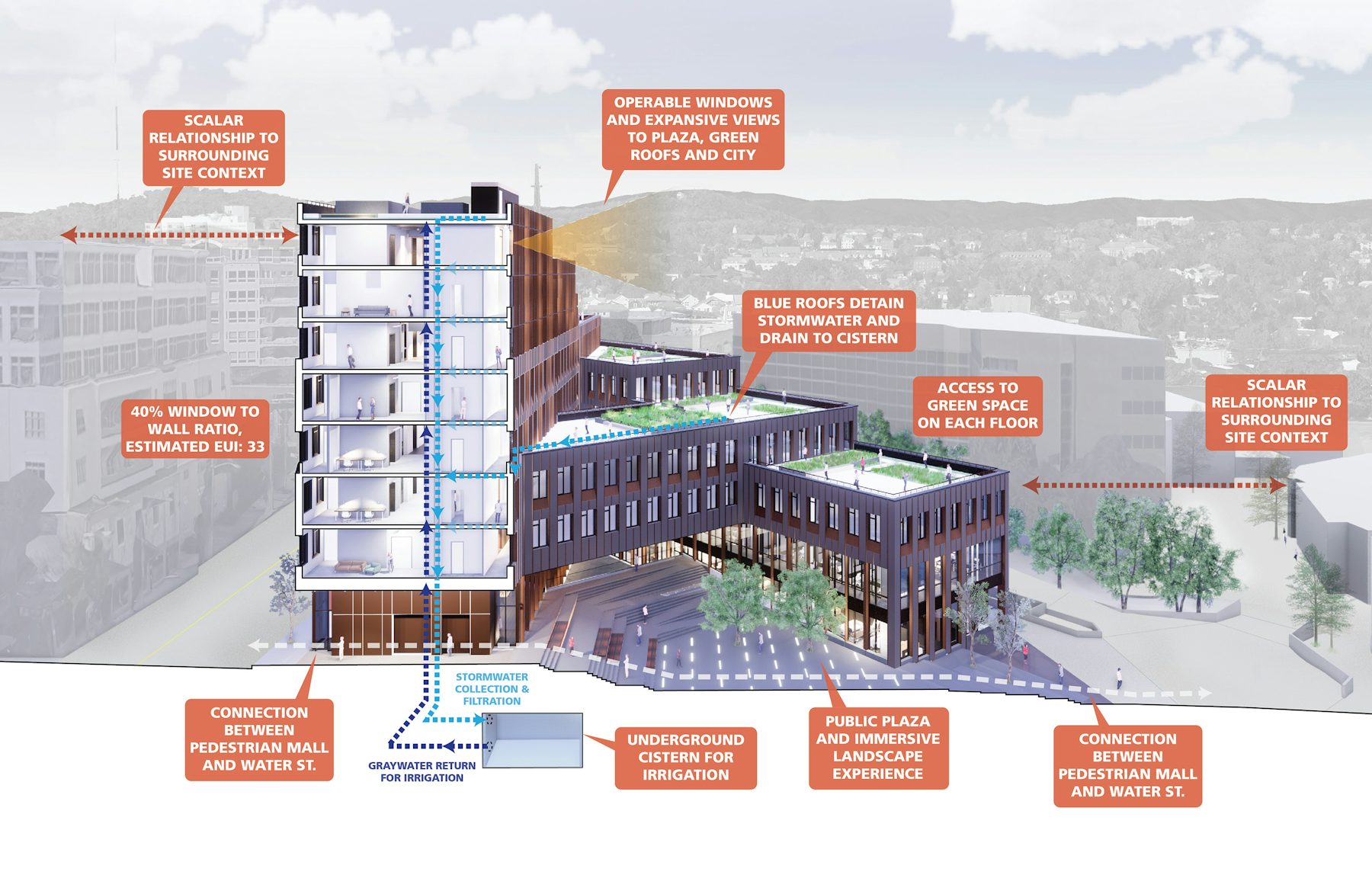
CODE is designed to be a LEED Platinum certified building, employing systems and technologies beyond even LEED standards, that will increase the fresh air exchange, provide fine-tuned environmental controls allowing for natural ventilation and daylighting.
